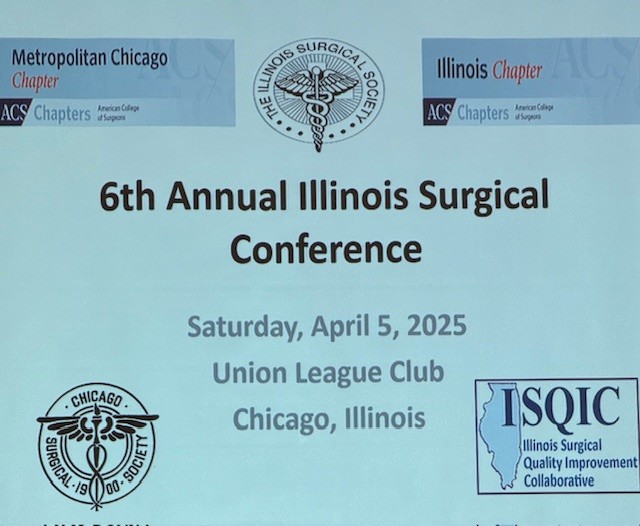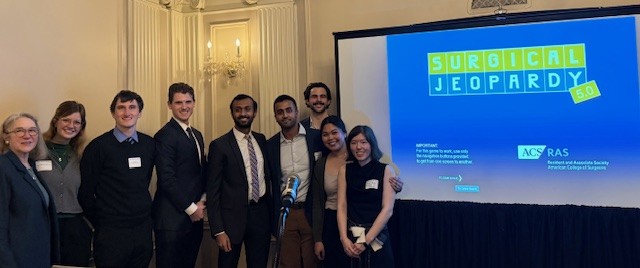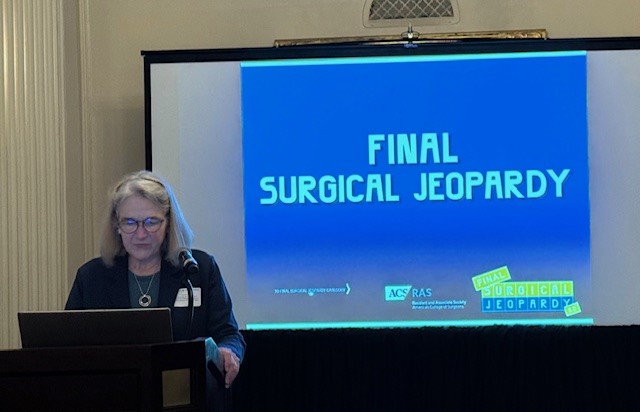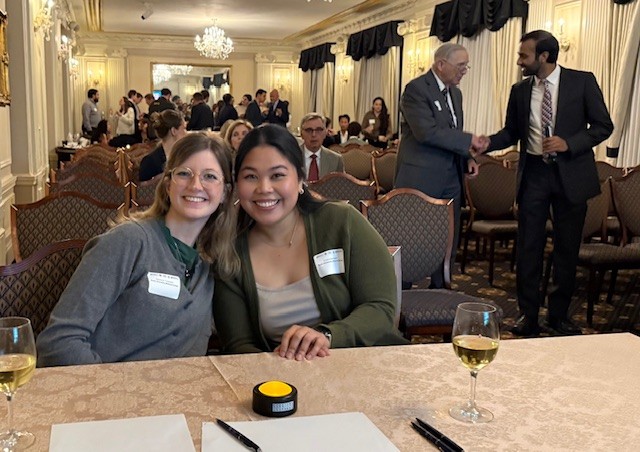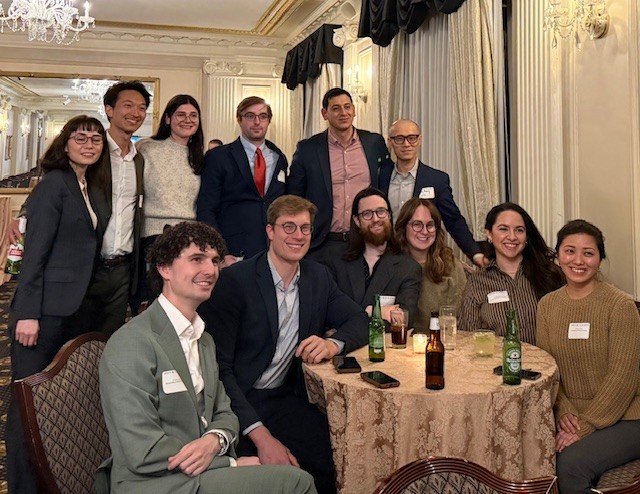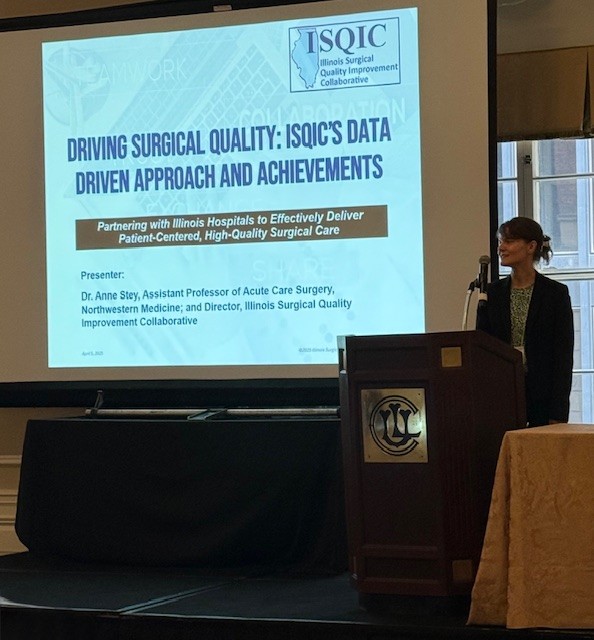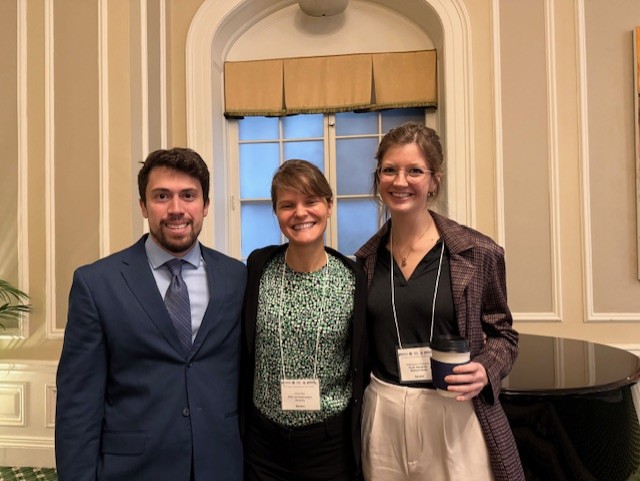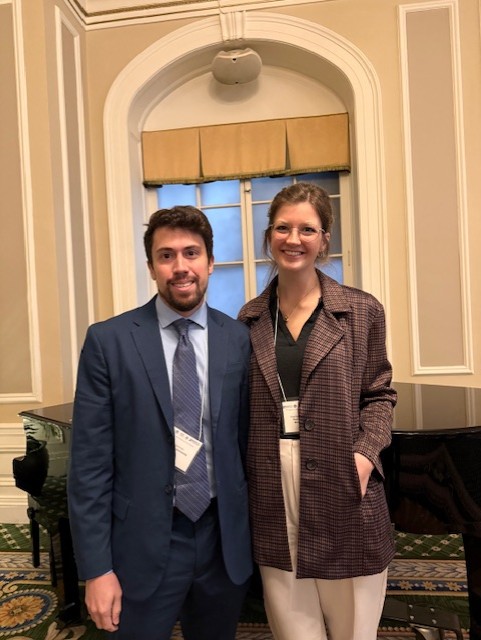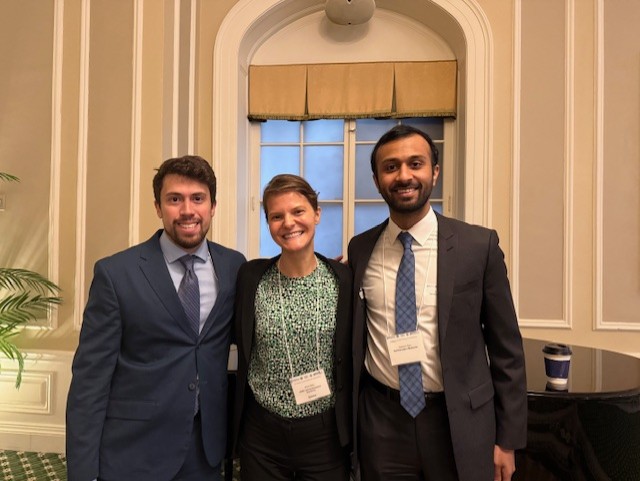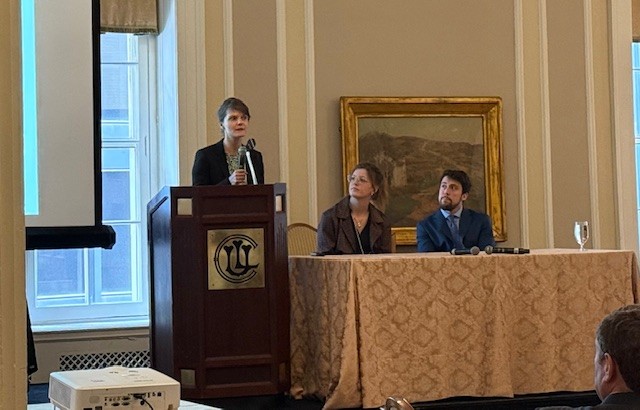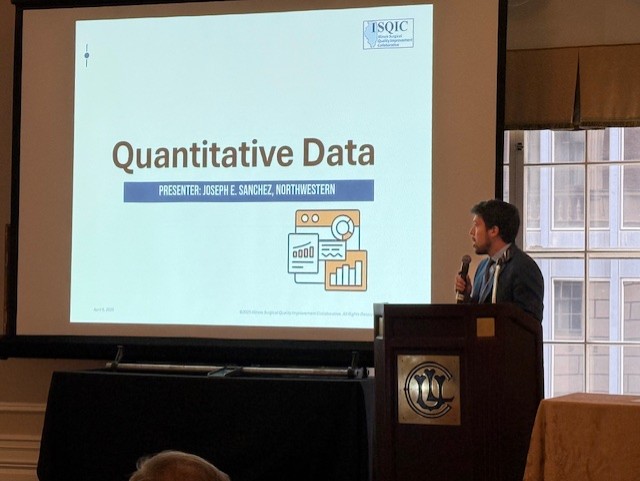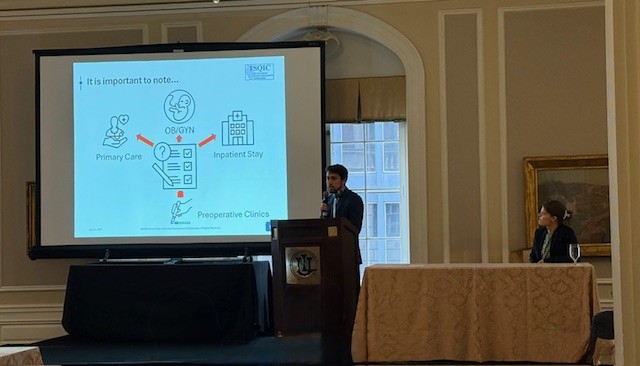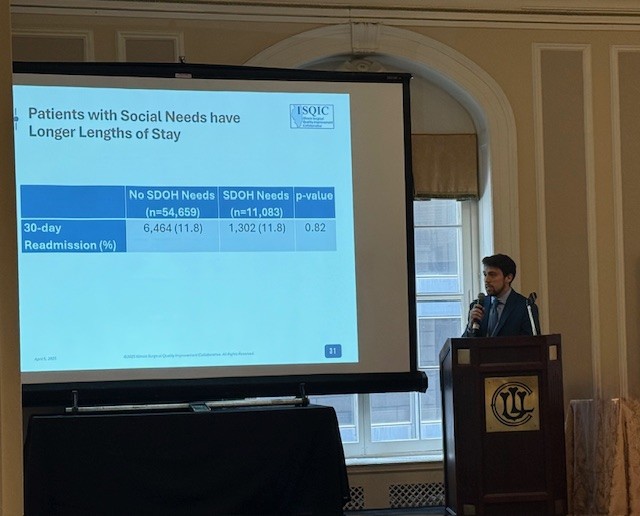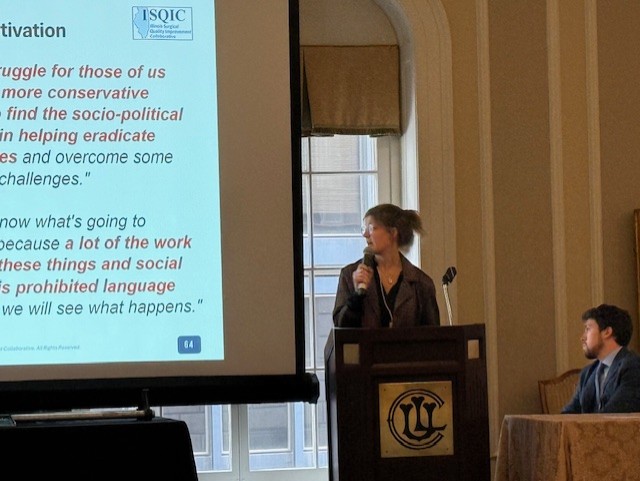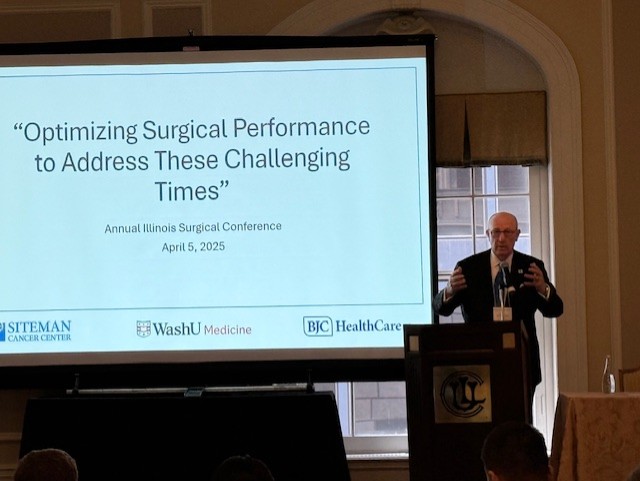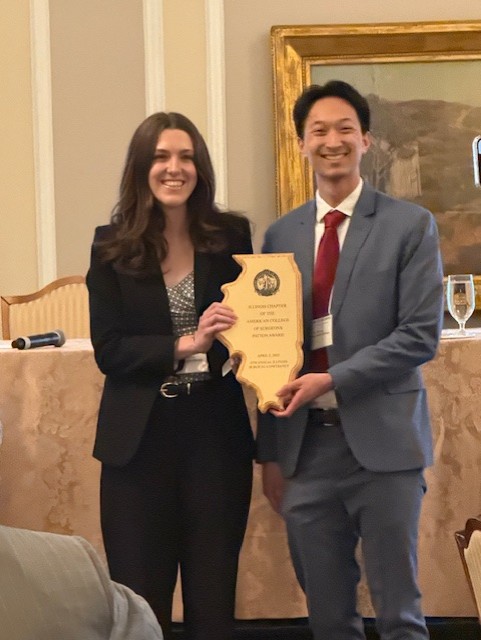Thank you to all who joined us in 2025! Save the Date for 2026!
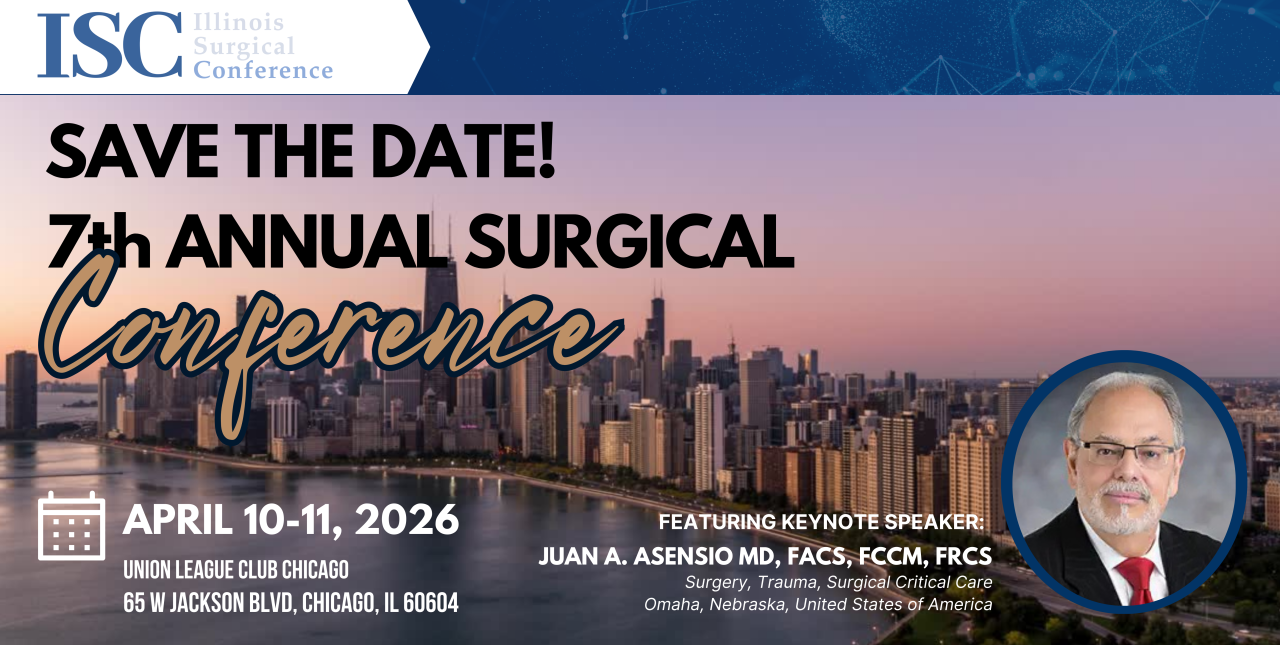
Thank you to everyone who attended this year’s ISC event! Dr. Timothy Eberlein delivered the keynote address, “Optimizing Surgical Performance to Address These Challenging Times.” Stay tuned for details on next year’s event in 2026.
View 2025 Event Flyer (PDF) View 2025 Agenda (PDF)
Emphasizing Impact and Innovation! Knowledge, Collaboration, and Competition: Recap of the 6th Annual Illinois Surgical Conference
The 6th Annual Illinois Surgical Conference kicked off with a spirited evening of Resident Jeopardy on April 4, setting the tone fora weekend of camaraderie and clinical excellence. Four teams—representing Northwestern, the University of Chicago, the University of Illinois at Chicago, and Rush University Medical Center—competed in a fast-paced contest of surgical knowledge. The University of Chicago team emerged victorious, with UIC securing a strong second-place finish. The event was a highlight for many, offering a fun and collegial way to connect with peers before diving into the main conference sessions.
Held April 5 at the Union League Club in downtown Chicago, the conference brought together surgical leaders, researchers, and clinicians from across Illinois.
Co-hosted by ISQIC, the Chicago Surgical Society, the Illinois and Metropolitan Chicago Chapters of the ACS, and the Illinois Surgical Society, the 2025 Illinois Surgical Conference brought together surgical leaders from across the state to explore new frontiers in surgical care.
Dr. Timothy J. Eberlein of Washington University School of Medicine delivered a powerful keynote, “Optimizing Surgical Performance to Address These Challenging Times,” highlighting the evolving demands of surgical leadership and the importance of continuous quality improvement.
ISQIC shared major updates, including the launch of a pilot Common Data Model (CDM) that uses AI to extract high-quality data directly from electronic health records—reducing the burden of manual data collection and improving the accuracy of surgical quality metrics. The team also presented early findings from its Social Drivers of Health (SDOH) project with Rush University, showing that patients with unmet social needs face significantly longer hospital stays. Theseinsights underscore the need to integrate social context into perioperative care and support hospitals with data-driven strategies.
As the conference closed, attendees left with renewed energy and a shared commitment to improving surgical care across the state. For those who missed the event or want to revisit key moments, a full recap is available at www.ilsurgicalcollaborative.org.
Planning is already underway for the 2026 Illinois Surgical Conference, and we look forward to welcoming even more voices to the conversation next spring.

